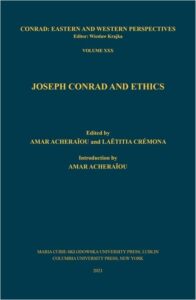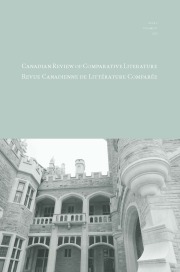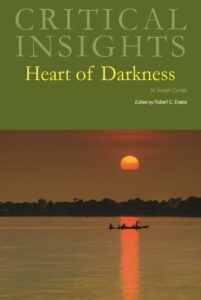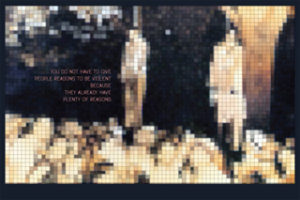Paul Matthew St Pierre devotes a large section of his review article “Some self-reflections on colonialism and postcolonialism” (ESC, June 2009) to Rethinking Postcolonialism. He writes:
“[…] Amar Acheraiou posits the concept of “rethinking postcolonialism” as a means to reconsider and re-evaluate literatures produced during the period of colonization, to reconfigure oneself as a postcolonial subject, and to render arbitrary the politically determined boundary between colonialism and postcolonialism, like the critically determined boundary between modernism and postmodernism, and thus to expand postcolonialism’s historical and cultural capacity. Rethinking Postcolonialism: Colonial Discourse in Modern Literature and the Legacy of Classical Writers is distinguished by the scope of its subjects, ranging from Conrad to Gide, Kipling to Camus, in the context of an actual colonialism, as distinguished from a historicized one. Acheraiou’s rethought colonialism is more a personal interpretation of a human tendency to dominate members of their own species than a conventional postcolonial theory of literature, oral production, art, and culture, because Acheraiou prefers to see colonialism as “an immemorial phenomenon” (3), as distinguished from the time-specific phenomenon of various hegemonic European empires in the New World over the past five hundred years. Thus, in the arc of his discussion he addresses how classical writings have influenced colonial discourse over the last two centuries and how constructs of modernism and empire are interrelated.
Devoting only two of his eleven chapters to the almost obligatory betes noirs of Conrad’s Almayer’s Folly and Heart of Darkness, Acheraiou leaves himself room to address the more compelling questions of rethinking a postcolonialism that may never have been thought through in the first instance and recovering thoughts of colonialist discourse. His theory of postcolonialism is ideologically expansive and culturally inclusive, historically bold, and reminiscent of empire in that he reminds readers that colonialism has never ended and may be a universal system without an end boundary. Much of his discussion pertains to imperial ideologies, attitudes, and practices as informing specific works of literature and as evident textually. His commentary on the texts is insightful and engaging in its didactic energy. For example, on the titular character in Conrad’s story “Karain: A Memory” (1897), he observes, “The ghost-ridden, superstitious Karain is a prototype concentrating the Malays’ features. He is made paradigmatic of his race, culture and environment typifying the very Malay essence and tropical nature. In semiotic terms, Karain becomes a mere metonymy–the part that represents the whole–mirroring his own people. He is reduced to a generic type, organically connected to his cultural and geographical milieu” (43). The subtle rhetorical transitions apparent here, from prototype to paradigm and metonym, and from race, culture, and environment to cultural and geographical milieu, are typical more of Acheraiou’s pedagogy than of his style of writing.
Pedagogical rhetoric marks an important property of this book, in that Acheraiou, rather than simply theorizing about “rethinking postcolonialism,” engages his readers in a discourse that instructs in and even fosters new modes of thought distinct from the conventional outcome of a convincing scholarly argument. In reference to Ulysses, Acheraiou positions Leopold Bloom in a colonial paradigm but not as an imposition of his thesis: “The choice of Bloom as a protagonist of a novel that addresses the genesis of colonialism is in this case very appropriate. Owing to his dual identity (Irish citizen of Jewish descent) Bloom stands for the portrait of the colonised par excellence, enacting a modern Irish colonial subject and an ancient colonised Israelite. As such, he connects modern British imperialism to the most ancient imperial power, the Egyptians” (106). Rather than merely arguing that Bloom is an imperial subject, as by acknowledging his “choice” and the appropriateness of his “case,” Acheraiou concedes that Bloom “stands for the portrait of the colonised” in the manner of a metonym. By inviting readers to consider Bloom according to a new model, as an imperial subject, Acheraiou actually draws attention away from Joyce’s protagonist to “the portrait of the colonised,” to the prototype he discusses throughout the book. Rather than rethinking Bloom, or indeed Ulysses, readers rethink colonialism by forging a continuum between two colonial powers, British (a present type) and Egyptian (an ancient prototype). Although I already know what I think about the boundless continuum of colonialism, Acheraiou’s new models of “rethinking postcolonialism” provide welcome alternatives to what I must now concede is always already known: his pedagogical rhetoric has some efficacy. The rationale of his paradigm of rethinking thought through “rethinking postcolonialism” is not simply instructional, however. In addition his paradigm emphasizes how colonizers, including some colonial writers, drew on ancient colonial models such as Egypt, Greece, and Rome.
Acheraiou problematizes “rethinking postcolonialism” by aligning it with how colonizers conceptualized colonialism. In his conclusion as throughout the book he stresses “the intricate connections between ‘new’ and ancient imperialism” (214), he notes that “ideological inconsistencies … can also be easily discerned in the works of those criticising empire, such as Conrad, Forster, Woolf, Green, Gide and Camus” (217), and he cautions that “failing to acknowledge that imperialism was for the majority of the natives an odyssey of dispossession, humiliation and alienation may be just as mystifying as reducing the colonial encounters to smooth, balanced transactions” (219). His argumentative purpose seems to be to identify scholarly complacency as a hazardous attitude that is common to the perpetrators of both colonialism and postcolonialism and thus to destabilize even his own pedagogy and the knowledge readers gain from his book. This epistemological ambivalence points to the originality of his study and the danger as well as insight that is a consequence of tampering with the prevailing view of postcolonialism as an epistemological duration following an indisputably complete historical and interpretive record. […]”
Reference:
Paul Matthew St Pierre, “Some self-reflections on colonialism and postcolonialism,” English Studies in Canada 35.2-3 (June 2009).
 A new book entitled Joseph Conrad and Ethics I co-edited with Laetitia Crémona (Université de Montréal) is to be released in August 2021 (Maria Curie-Sklodowska University Press / Columbia University Press). The book is volume 30 of the series Conrad: Eastern and Western Perspectives, edited by Wiesław Krajka. It explores a major, understudied Conradian topic – Ethics, and adds an important thematic and theoretical dimension to this series. The chapters are written by experts from various universities worldwide, in keeping with the international, cosmopolitan spirit of Eastern and Western Perspectives. The authors’ wide-ranging, original perspectives on ethics open new venues in Conrad scholarship that will be useful to scholars and students of Conrad, modernism, and ethics.
A new book entitled Joseph Conrad and Ethics I co-edited with Laetitia Crémona (Université de Montréal) is to be released in August 2021 (Maria Curie-Sklodowska University Press / Columbia University Press). The book is volume 30 of the series Conrad: Eastern and Western Perspectives, edited by Wiesław Krajka. It explores a major, understudied Conradian topic – Ethics, and adds an important thematic and theoretical dimension to this series. The chapters are written by experts from various universities worldwide, in keeping with the international, cosmopolitan spirit of Eastern and Western Perspectives. The authors’ wide-ranging, original perspectives on ethics open new venues in Conrad scholarship that will be useful to scholars and students of Conrad, modernism, and ethics.

 Joseph Conrad masterwork “Heart of Darkness” has not only inspired but has also provoked heated controversy. Once seen as an attack on the brutalities of European colonialism, it can also be read as a colonialist project in its own right. This volume edited by Robert C. Evans explores the many dimensions of Conrad’s work, looking at it in historical, literary, and cultural contexts, and examining both its artistry and its themes. I have contributed an original chapter to this volume, entitled “Ethics and Horror in Heart of Darkness,” which may be of interest to students and scholars working on Conrad, modernism, postcolonialism and ethics. It closely and critically examines ethics and colonial power in this novella.
Joseph Conrad masterwork “Heart of Darkness” has not only inspired but has also provoked heated controversy. Once seen as an attack on the brutalities of European colonialism, it can also be read as a colonialist project in its own right. This volume edited by Robert C. Evans explores the many dimensions of Conrad’s work, looking at it in historical, literary, and cultural contexts, and examining both its artistry and its themes. I have contributed an original chapter to this volume, entitled “Ethics and Horror in Heart of Darkness,” which may be of interest to students and scholars working on Conrad, modernism, postcolonialism and ethics. It closely and critically examines ethics and colonial power in this novella. “Coming more than two decades after the emergence of postcolonialism as a disciplinary formation, Amar Acheraïou’s Questioning Hybridity, Postcolonialism and Globalization is a welcome interrogation of hybridity that challenges postcolonialism’s obsessive preoccupation with hybridity. The book’s greatest strength lies in its disengagement of hybridity from its privileged position in postcolonial theory and in the light it throws on how it has been historically perceived in Western and non-Western cultures. By deconstructing hybridity as a practice, discourse and ideological construction, the book unpacks the positive and negative meanings of hybridity through history and its imbrication with the discourse of metissage not only to demonstrate that hybridity has been a norm rather than an aberration in major world cultures and civilizations but also to ‘resituate the power dynamics and multi-rooted nature of hybridity.’ While the book expertly glides from ancient Greece, Persia and Rome to the present in order to juxtapose alternative perceptions of hybridity against its postcolonial valorization and deftly returns the concept to the material realities of individuals and groups living under the difficult conditions of postcolonialism, it stops short of proposing a demotic theory of hybridity. […].
“Coming more than two decades after the emergence of postcolonialism as a disciplinary formation, Amar Acheraïou’s Questioning Hybridity, Postcolonialism and Globalization is a welcome interrogation of hybridity that challenges postcolonialism’s obsessive preoccupation with hybridity. The book’s greatest strength lies in its disengagement of hybridity from its privileged position in postcolonial theory and in the light it throws on how it has been historically perceived in Western and non-Western cultures. By deconstructing hybridity as a practice, discourse and ideological construction, the book unpacks the positive and negative meanings of hybridity through history and its imbrication with the discourse of metissage not only to demonstrate that hybridity has been a norm rather than an aberration in major world cultures and civilizations but also to ‘resituate the power dynamics and multi-rooted nature of hybridity.’ While the book expertly glides from ancient Greece, Persia and Rome to the present in order to juxtapose alternative perceptions of hybridity against its postcolonial valorization and deftly returns the concept to the material realities of individuals and groups living under the difficult conditions of postcolonialism, it stops short of proposing a demotic theory of hybridity. […].